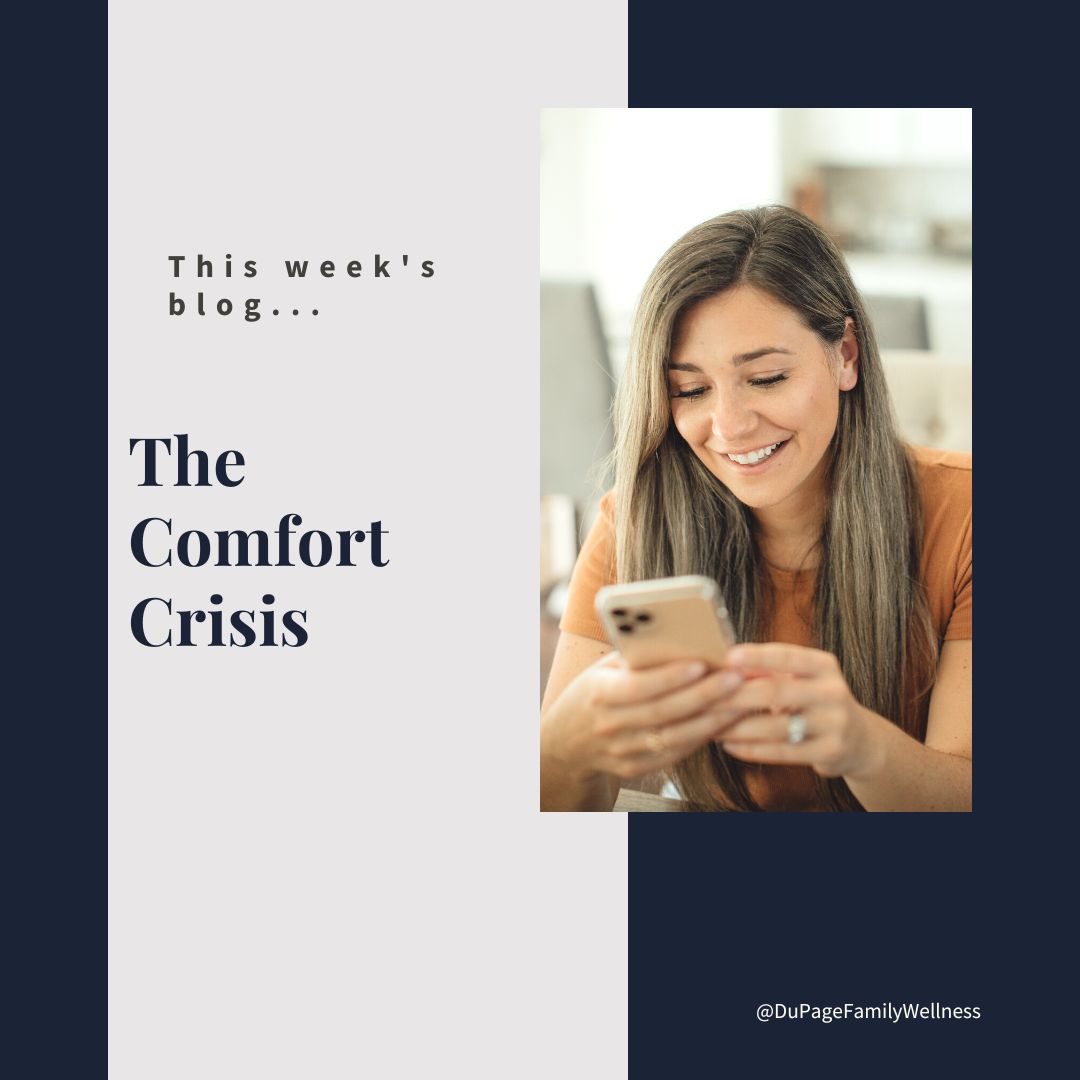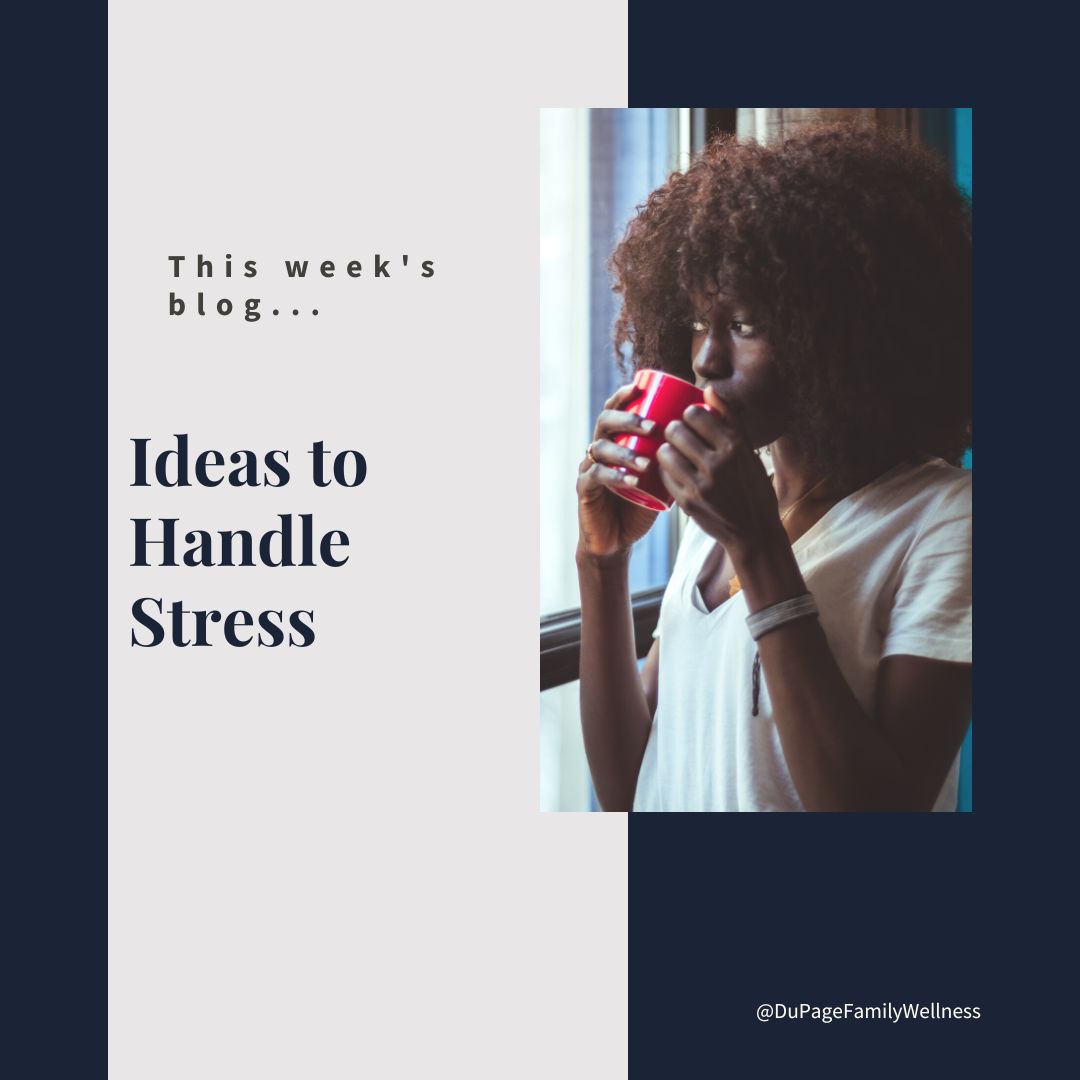The Comfort Crisis
 Recently I listened to "The Comfort Crisis" By Michael Easter.
Recently I listened to "The Comfort Crisis" By Michael Easter.
In many ways, we are more comfortable than ever before, but could our privileged lives be doing us harm? This book explains how our culture sets us up for physical and emotional suffering by making life too easy.
Easter grew up in a family plagued with addictions. As a young man, he used drugs to avoid uncomfortable emotions and found himself addicted too. When he walked a path towards sobriety, he began to experience much discomfort. Knowing it was part of the process of getting free he learned to embrace it.
Once he was sober, he began recognizing the incredible benefits of discomfort. He realized that our culture prioritizes comfort so much that it’s impacting our very experience of being human. In Easter’s view, comfort has lulled us into a complacency that takes meaning and joy out of life.
His quest to break out of this took him to the Arctic. There for thirty days, he had little of the comforts we take for granted each day. In return, he experienced physical strength, emotional health, a clear mind, and extreme gratitude.
He already shares many of my views about living more like our ancestors, but there was one lesson in this book that really stood out to me. Since I've spent many articles talking to you about all of the wonderful ways to live like our ancestors, I'll highlight my major takeaway today.
Is Life Just Passing You By?
Benefits of Embracing Discomfort
Easter is not opposed to comfort, believing it is only a problem when we always seek comfort. Below are some of the specific benefits he has experienced from embracing discomfort. Many of them are based on avoiding the comfort that modern distractions bring.
- Hard things make other day-to-day things seem easy in comparison.
- Deep thoughts emerge when you avoid modern distractions.
- Creativity and productivity increase after periods of boredom.
- Accepting and listening to your feelings gives you valuable information.
- Gratitude increases after periods of deprivation.
- Recognizing that you can do hard things reveals where you are selling yourself short.
- Gaining a sense of meaning and purpose.
A Bat in the Kitchen!?!
 A bat in the kitchen??? I was doing the dishes when I looked down behind a large pot and saw something moving. At first, I thought it was a frog, and then I realized it was a BAT! My heart started racing. How the heck did a bat make its way into my kitchen sink, and better yet, how was I going to get it out?
A bat in the kitchen??? I was doing the dishes when I looked down behind a large pot and saw something moving. At first, I thought it was a frog, and then I realized it was a BAT! My heart started racing. How the heck did a bat make its way into my kitchen sink, and better yet, how was I going to get it out?
Jared had already left for work, so it was just the girls and me. While the girls like animals it was definitely on me to take care of this situation. I called a few dads in the neighborhood, but no one was home. Then I got ahold of my next-door neighbor Ellen who brought over a bucket.
As I waited for her, I found myself involuntarily trying to shake the creepy feeling off. It was as if my body needed the movement to get this feeling out. As I thought about my response, it dawned on me that there was something significant in the phrase “shake it off.”
Looking it up later, I found out that shaking can be an element of preventing and healing trauma. Let’s explore that for a minute before I tell you what happened with the bat!
Shaking it off in Nature
In nature, animals are often in situations that seem traumatic but rarely suffer from it long-term. Only humans and zoo animals experience trauma that lingers, sometimes for years, with an emotional and physical impact. This may be due to the wild animals' ability to discharge the flight or flight chemicals from the body through movement.
Trauma specialist Peter Levine uses the example of a polar bear who was running from trackers after being shot with a tranquilizer. Once the bear got the care needed and started to regain consciousness, it began to shake intensely. Its legs thrashed while it made biting movements over its shoulder. Then it began to gasp deeply and went into a freeze state. Replicating and completing this flight-flight-freeze cycle released the trauma chemicals in the body.
(You can watch the video here, but use discretion if you are an animal lover. It can be hard to see an animal tranquilized regardless of the good intent.)
What about us?
In times of crisis, your nervous system is designed to go into a state of fight, flight, or freeze. These protective responses happen automatically to provide you with the best chance for survival. Levine explains that trauma happens when the body is “unable to complete a satisfactory fight, flight or freeze response.” There are many reasons that could prevent someone from moving through such a response.
In traumatic situations, people are often prevented from defending themselves or getting away from the danger. Their survival might depend on suppressing their natural instinct. Our society's insistence on being "strong" and keeping our emotions in check doesn't help either. Often, these factors result in trauma being trapped in the body.
Schedule Online Today
 While we love the personal touch of a phone call, we realize that your convenience is what really matters. It is with this in mind that we originally set up the online scheduling system Acuity.
While we love the personal touch of a phone call, we realize that your convenience is what really matters. It is with this in mind that we originally set up the online scheduling system Acuity.
This online program makes scheduling an appointment easier than ever. No more phone tag, waiting for a callback, or wondering if it’s too late to text. Acuity is there for you 24 hours a day, 7 days a week.
Scheduling an appointment online only takes a minute; just follow the steps described below.
How Does Online Scheduling Work?
Simply click on the link, select the type of appointment you would like, and choose an appointment time that works well for you.
https://acuityschedulingforDuPageFamilyWellness.as.me/
What Type of Appointment do I Need?
All new patients will need to schedule an hour appointment so that we can do a full medical history and exam.
Existing patients will choose between 15 and 30-minute appointments. While it is difficult to set exact guidelines, the following examples may help you determine what best fits your needs. (Typically a unit of ART is one area, though more involved cases may require more.)
- Chiropractic adjustment-only visits (15 minutes)
- If you have only one body part for ART (i.e. just ankle or just elbow - 15 minutes)
- Active Release Techniques plus an adjustment (typically 30 minutes)
- Reactivation for those who have not been seen for 3+ months (30 minutes)
Do I Need to Make an Account?
While you are welcome to make an appointment as a guest, creating an account will allow you to log in and see all your scheduled appointments.
Will I get Appointment Reminders?
Acuity sends appointment reminders through email. You will not get a text, so make sure to provide your email if you would like reminders.
We are excited to walk with you on your journey to health. If you’ve been meaning to set up an appointment, go ahead and do it online now!
Dr. Jamie
Are you in a Sleep Deficit?
 The National Sleep Foundation recommends that adults get between 7-9 hours of sleep each night. If you don’t get seven hours, take a minute to add up the sleep deficit you will acquire over the course of a year.
The National Sleep Foundation recommends that adults get between 7-9 hours of sleep each night. If you don’t get seven hours, take a minute to add up the sleep deficit you will acquire over the course of a year.
For example, if you sleep 6 hours a night you are under the ideal by 1-3 hours each night. Over the course of a year that adds up to 365-1095 hours, meaning you are literally 2-5 weeks behind on sleep each year.
Lack of sleep lowers your immune system, mental clarity, musculoskeletal growth, energy, stress tolerance, and insulin levels. It increases your risk of obesity, diabetes, inflammation, cardiovascular disease, hypertension, and psychiatric disorders.
So, let’s talk about good quality sleep and how to get it.
Sleep Hygiene
Organizing your day and environment in a way that sets you up for a great night’s sleep is referred to as sleep hygiene. But remember, no amount of sleep hygiene will help if you don’t allow enough time for sleep!
- Get bright natural light in the morning (use a light machine when natural light isn't available)
- Make your room completely dark when you go to bed (room darkening shades, an eye mask, covering the alarm, etc.)
- Limit blue light in the evening (computers, smartphones, television, etc.)
- Move your body throughout the day (take the stairs, go for a walk, work out, stand while talking on the phone, etc.)
- Listen to your stomach (you may benefit from a light dinner, bedtime snack, or meal with more carbs and fat)
- Limit coffee and soda (especially later in the day)
- Limit drinking alcohol
- Practice stress management techniques (deep breathing, meditation, yoga, getting together with friends, etc.)
- Get a comfortable bed
- Use your room only for sleep and sex
- Control the temperature of the room (often a cool temperature is best)
- Monitor the noise level (do you prefer soft noise or silence)
- Keep a “lizard brain treat” by your bed if you wake up often (Dr. Kristen Allott recommends keeping a snack of sugar and protein on your nightstand. Sugar gets to your brain almost immediately, reducing the adrenaline. Protein extends the amount of time before you need to refuel.)
Sleep Duration
Pay attention to when you tend to go to sleep and the time that you wake up without an alarm. Each morning at the same time after waking up, take the reaction time test here.
Ideas to Handle Stress
 During times of stress, our bodies are designed to go into a state of fight, flight, or freeze. While these stress responses are beneficial during a time of crisis, we were not meant to be in them long-term.
During times of stress, our bodies are designed to go into a state of fight, flight, or freeze. While these stress responses are beneficial during a time of crisis, we were not meant to be in them long-term.
Staying in a stress response for a long period of time is detrimental to our health in many ways. Inflammation, poor digestion, high blood pressure, and increased glucose levels may result. Your immune system's response will be negatively impacted.
By reducing the amount of stress and increasing your capacity to handle unavoidable stress, you can help regulate your nervous system so you can stay balanced.
Let’s look at some stress management techniques that you can use today.
Grounding
Grounding is simply bringing your awareness back to the present moment by drawing your attention to your body and surroundings. It is helpful for handling stress since most of our concerns are about things in the past or future.
Simply closing your eyes and paying attention to your breath brings you back to the moment. Thoughtfully looking at things in your surroundings or noticing sensory input can be an effective tool as well. The key is the intention and awareness behind the action.
For directed grounding exercises check out the following…
- Box Breathing (Healthline)
- 5-4-3-2-1 (The Blissful Mind)
- Basic Breathing For Stress Management (Harvard Health)
- Self-Compassion Meditations (with Kristen Neff)
Social Connection
Positive social cues are good for your physical health. Warm connections lead to the activation of the parasympathetic nervous system reducing stress. This is often referred to as co-regulation of the nervous system where healing takes place.
So, connect with others by…
- getting together with a friend.
- calling your loved ones.
- using video calls to be face-to-face with those who live at a distance.
- texting someone you’ve been thinking about.
- smiling at those you walk by through the day.
- getting to know your co-workers.
- joining a club or organization (book club, sports team, religious organization, etc.)
Enjoyable Activities
Choosing life-giving activities that you can engage in every day will offset some of the stress in your life.
You might want to…
- snuggle up with a book.
- go for a walk.
- take deep breaths of fresh air.
- listen to bird noises or other natural sounds.
- lay on the floor stretching.
- play with a pet.
- savor a small piece of dark chocolate.
- sit in silence.
- listen to music.
- spend time with those you enjoy.
- get a drink of water or make a cup of tea.
For more information check out Self-Care for Everyone.
More Articles ...
- Exploring the Forest Preserve
- Tackling Breakfast
- Taking the Stress out of School Lunches
- How to Wear a Backpack
- Self-Compassion: What it is & How it Can Impact Your Life
- Would Your Grandma Recognize it as Food?
- An Easy Life Hack for Physical & Mental Well-Being
- Should You Drink Water?
- The 3 Connections
- My Experience with Functional Patterns
- Summer Breakfast Ideas
- Summer PSA for Parents
- Willpower Isn't Enough
- A Different Perspective on Sun Exposure
- Meal Planning Made Easy
- Caring for Yourself this Summer
- Foods I Thought Were Healthy
- What Stories are you Telling Yourself?
- Breathing Properly at Night
- Getting Outside in the Nice Weather


